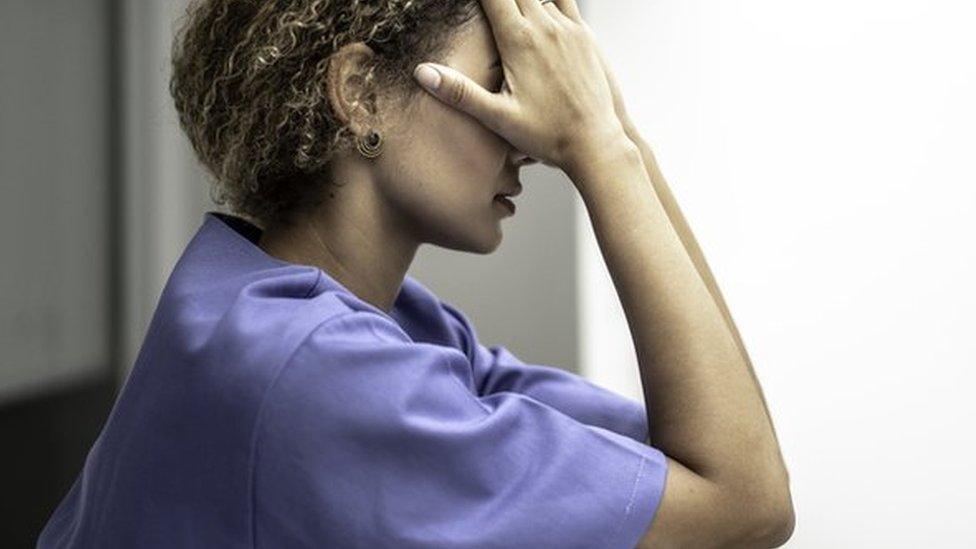Doctors in Wales consider striking for the first time
- Published
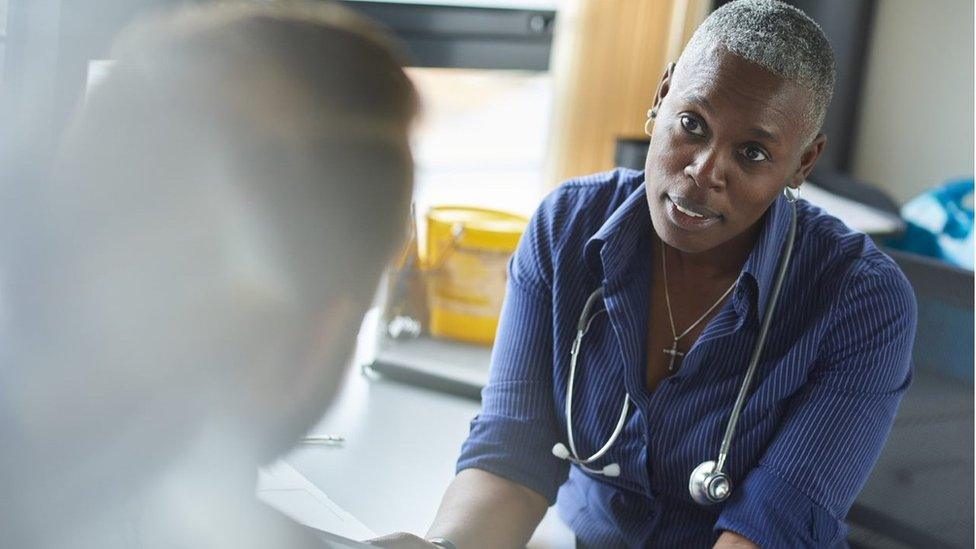
The survey found two-thirds of doctors would be willing to take some form of industrial action
Doctors in Wales are considering going on strike for the first time.
Almost two-thirds of hospital doctors surveyed by the British Medical Association (BMA) Cymru said they would be willing to take some form of industrial action.
The BMA's Welsh Council chairwoman, Dr Iona Collins, said the result of the survey was "upsetting to all".
The Welsh government said it understands the strength of feeling among doctors about the pay offer.
BMA Cymru Wales said the starting salary is £26,000, with junior doctors in training programmes for between five and 11 years if they are training full-time, or longer if training less-than-full-time or with breaks.
Dr Iona Collins added that it was "gut-wrenching for doctors to consider walking away from work".
"Without action now, patients will continue to suffer as a direct consequence of an under-funded NHS with insufficient direct clinical care."
The announcement comes after a week of walkouts by nurses and ambulance staff across the country calling for better wages and conditions.
Industrial action may include strike action over their current pay and conditions.
The BMA announced in October that a ballot for industrial action by junior doctors in England - who received a 2% pay increase this year - would open on 9 January.
The union said that over the past 15 years, junior doctors' take-home pay has been cut in real terms by more than a quarter.
Just under 1,000 doctors in Wales responded to the questionnaire seeking views on the latest pay award from the Welsh government of 4.5%, with 78% of those who answered saying they want a pay rise that matched or exceeded inflation.
A previous survey undertaken by the BMA in August found that 52% of members who responded were more likely to leave the Welsh NHS as a result of the below inflation pay rise.
Dr Iona Collins said: "Doctors have been quietly quitting the NHS for years, by reducing their contracted hours or leaving altogether. The financial incentive to remain in the NHS has eroded over the last decade.
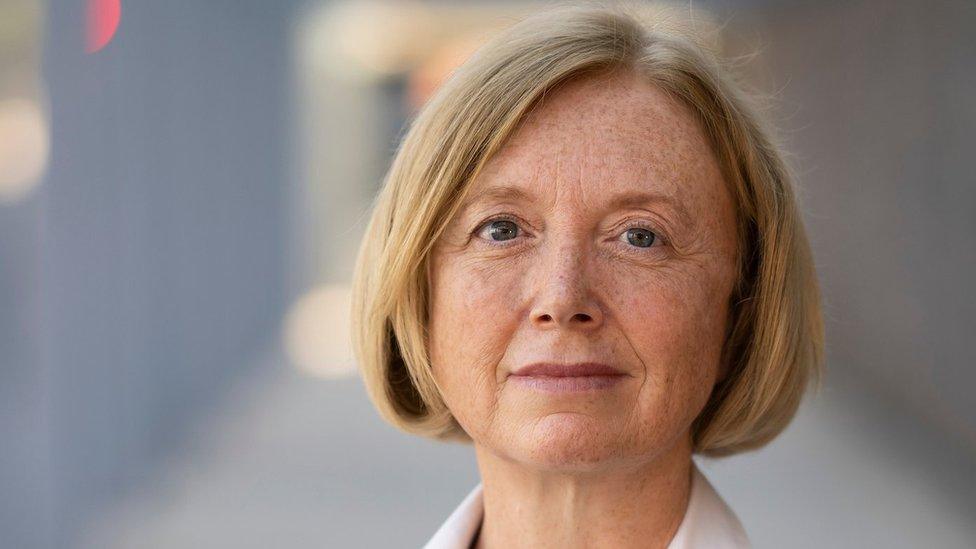
"Without action now, patients will continue to suffer as a direct consequence of an under-funded NHS with insufficient direct clinical care," said Dr Collins
"A change in NHS pension taxation has seen senior doctors who have worked overtime in good faith punished for propping up the NHS by paying more than the overtime pay back as pension tax.
"No other healthcare system devalues their doctors like this, so there is little wonder that so many doctors leave the NHS to work elsewhere."
Dr Collins said she had called for an urgent meeting with Wales' health minister Eluned Morgan to discuss the survey and "need for immediate action".
Speaking to BBC Radio Wales, Dr Collins said: "Junior doctors are having to pay their tuition fees - it's a long course, the medical course. The tuition fees alone are upwards of £9,200 alone a year and you've got to keep yourself fed and watered.
"Doctors are tired, they are overworked. Staff are having to work under tremendous pressure.
"Then you have lovely encouraging adverts from Australia, New Zealand, Singapore and the Middle East saying 'why don't you come and work with us? We will pay you so much better with a work force and a workplace being such a less challenging environment'."
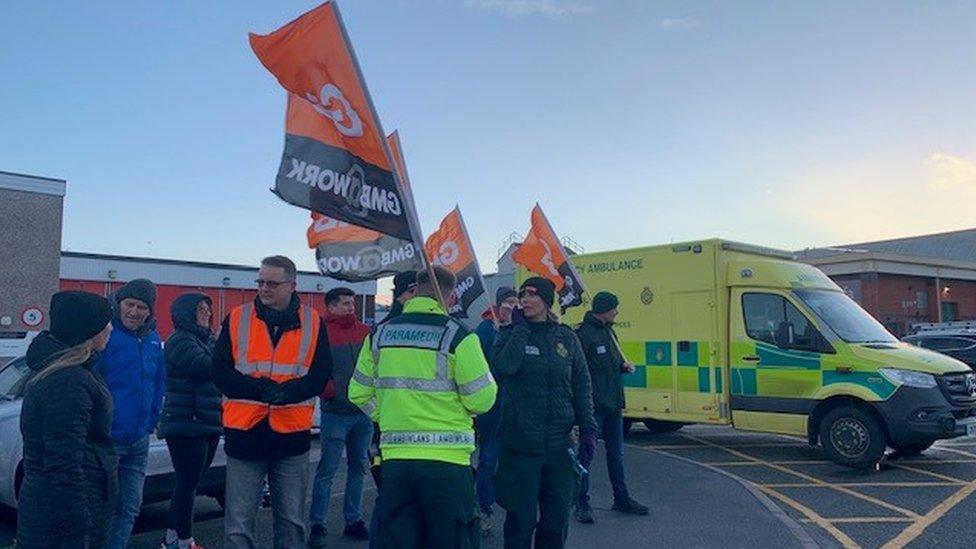
In Llandudno 10 people set up a picket line on Wednesday
The Welsh government said: "We understand the strength of feeling among doctors about the pay offer and the pressures all public sector workers are under due to the cost-of-living crisis.
"We will continue to work to bring together trade unions, employers and government to deliver the best possible outcomes for workers, while continuing to call on the UK government to use the funding it has to provide a fair pay offer to NHS staff and enable us to do the same in Wales."
It comes as GMB members of the ambulance service in Wales took part in a strike on Wednesday in a dispute over pay.
Executive medical director at Betsi Cadwaladr Health Board, Dr Nick Lyons, said he thought his staff managed "better than expected" as a result of the strikes.
"It's been a really tough three days here. We faced incredible pressures on the system last weekend and declared a critical incident on Monday," he said.
"There's been two days of incredible hard work by 19,000 staff looking after our patients for Christmas."
Related topics
- Published29 September 2022
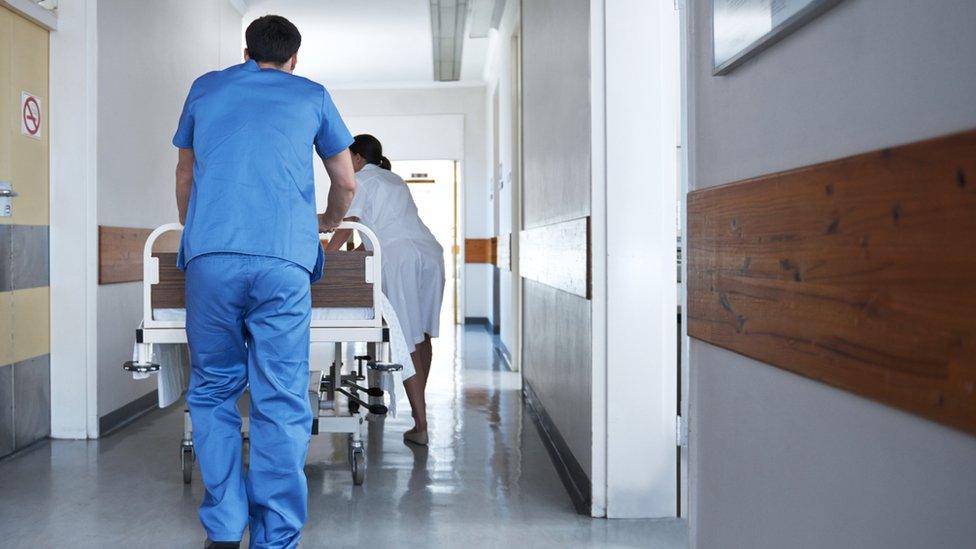
- Published21 December 2022

- Published6 June 2022
